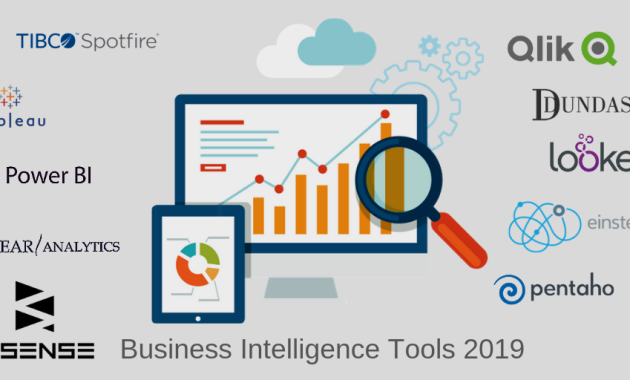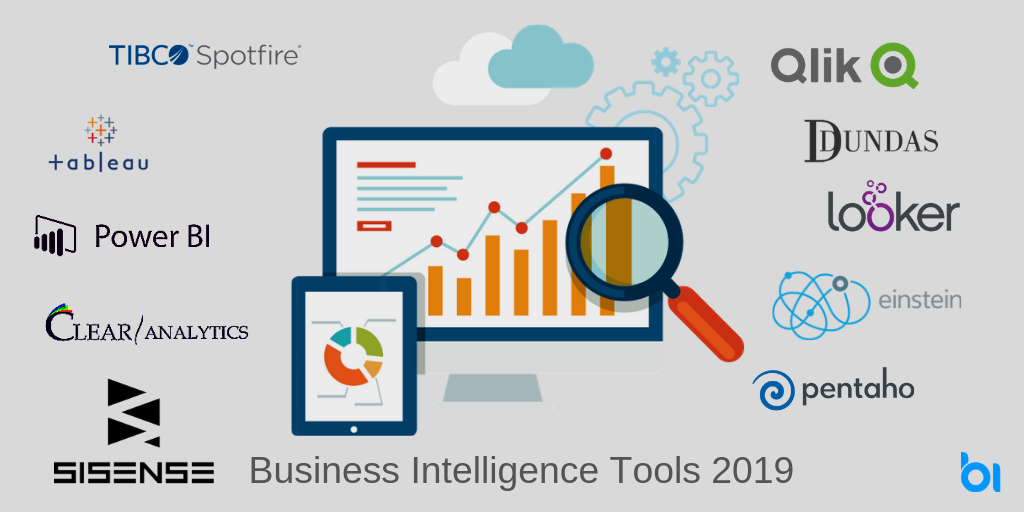
Secrets of 8 Business Intelligence Tools You Need to Know
In today’s data-driven world, businesses are drowning in information. The challenge isn’t just collecting data; it’s extracting meaningful insights to make informed decisions. This is where Business Intelligence (BI) tools come into play. These tools transform raw data into actionable intelligence, empowering organizations to gain a competitive edge. This article unveils the secrets of eight crucial business intelligence tools you absolutely need to know. These tools offer a range of functionalities, from data visualization to advanced analytics. They are designed to help businesses of all sizes unlock the power of their data.
The selection of the right BI tools can significantly impact a company’s performance. From streamlining operations to identifying new market opportunities, the right tools provide invaluable insights. Understanding the capabilities of these tools is the first step. The second step is implementing them strategically. This guide provides a comprehensive overview of eight essential BI tools, their key features, and how they can benefit your business.
Unveiling the Power of Business Intelligence
Business intelligence is more than just dashboards and reports. It’s a strategic approach to data analysis that helps organizations understand their past, present, and future. Effective BI implementation leads to better decision-making, improved efficiency, and increased profitability. The core of business intelligence involves collecting, processing, analyzing, and visualizing data. This process delivers valuable insights. These insights drive strategic planning and operational improvements. The goal is to turn raw data into actionable knowledge.
The evolution of BI has been remarkable. Early BI systems were often complex and expensive. Today, modern BI tools are more accessible and user-friendly. Cloud-based solutions and self-service analytics have democratized data access. This empowers everyone in the organization to make data-driven decisions. This shift is crucial in today’s fast-paced business environment. Businesses need to adapt quickly to changing market conditions.
Eight Essential Business Intelligence Tools
Tableau
Tableau is a leading data visualization tool. It is known for its intuitive interface and powerful analytical capabilities. Tableau allows users to create interactive dashboards and reports. These reports help visualize complex data. Its drag-and-drop functionality makes it easy to explore data. Tableau supports a wide range of data sources. These include databases, spreadsheets, and cloud services. It is ideal for businesses that prioritize data visualization. Tableau enables users to quickly identify trends and patterns. This tool is a cornerstone for data-driven decision-making.
Microsoft Power BI
Microsoft Power BI is a comprehensive BI platform. It integrates seamlessly with other Microsoft products. Power BI offers a wide range of features. These include data modeling, data visualization, and advanced analytics. It is a cost-effective solution. Power BI is suitable for businesses of all sizes. Its user-friendly interface makes it easy to learn. Power BI’s ability to connect to various data sources is a key advantage. It also provides strong collaboration features. Power BI is a versatile tool for comprehensive business intelligence.
Qlik Sense
Qlik Sense is a data analytics platform. It uses an associative data model. This model allows users to explore data in a more intuitive way. Qlik Sense helps discover hidden insights. It offers powerful data discovery capabilities. Qlik Sense supports self-service analytics. This empowers users to create their own dashboards and reports. Its user-friendly interface makes it easy to navigate. Qlik Sense is a great choice for businesses. It is a great choice if they need to explore data in depth. The platform’s associative model is a key differentiator. It helps users uncover valuable insights.
Looker (Google Cloud)
Looker, now part of Google Cloud, is a modern BI platform. It emphasizes data modeling and governance. Looker enables businesses to create a single source of truth. It provides consistent data across the organization. Looker’s powerful data modeling capabilities are a key strength. It supports complex data transformations. It is ideal for businesses needing robust data governance. Looker’s integration with Google Cloud is a significant advantage. It offers scalability and advanced analytics. It is a tool that supports long-term data strategy.
Sisense
Sisense is a BI platform focused on ease of use and performance. It is designed for both technical and non-technical users. Sisense offers a user-friendly interface. It allows users to quickly create dashboards and reports. Its in-memory technology ensures fast data processing. This is essential for large datasets. Sisense is suitable for businesses. They need to analyze large volumes of data. The platform’s focus on ease of use makes it accessible to a wide audience. Sisense provides real-time insights. It is a great option for businesses needing quick and actionable intelligence.
ThoughtSpot
ThoughtSpot is a search-driven analytics platform. It allows users to ask questions in natural language. ThoughtSpot delivers instant answers. It simplifies the data analysis process. The platform’s search-based interface is a key differentiator. It makes data exploration easy for everyone. ThoughtSpot is ideal for businesses. They need to empower all employees to use data. This platform is designed to make data accessible to everyone. It democratizes data analysis within the organization.
Zoho Analytics
Zoho Analytics is a cloud-based BI and analytics platform. It is designed for small and medium-sized businesses (SMBs). Zoho Analytics offers a user-friendly interface. It is easy to set up and use. It integrates with other Zoho applications. Zoho Analytics provides a cost-effective solution. It is suitable for businesses. They are looking for a comprehensive BI tool. The platform supports data visualization and reporting. It offers advanced analytics capabilities. Zoho Analytics is a great option. It is a great option for SMBs needing a complete BI solution.
Domo
Domo is a cloud-based BI platform. It is designed to connect data and people. Domo offers a wide range of features. These include data integration, data visualization, and collaboration tools. It focuses on real-time data insights. Domo is suitable for businesses. They need to monitor performance in real-time. The platform’s collaboration features are a key strength. They help teams share insights and make decisions together. Domo provides a holistic view of business performance. It is a powerful tool for data-driven decision-making.
Selecting the Right Tool
Choosing the right BI tool depends on your specific needs. Consider your data sources, budget, and technical expertise. Assess your business goals. Determine which features are most important. Data visualization capabilities are essential. User-friendliness is also a key factor. Think about the need for advanced analytics. Consider the level of data governance required. Evaluate the platform’s scalability. Research the vendor’s support and training options. Select a tool that aligns with your business strategy. This will maximize the return on your investment.
Implementing Business Intelligence Effectively
Implementing BI tools requires a strategic approach. Start by defining your business objectives. Identify the key performance indicators (KPIs). Determine the data sources you need to connect. Develop a data governance plan. Ensure data quality and security. Train your employees on how to use the tool. Foster a data-driven culture. Regularly review your BI implementation. Make adjustments as needed. Effective implementation ensures the tool delivers value. It also leads to actionable insights. This process requires careful planning and execution.
The Future of Business Intelligence
The future of business intelligence is exciting. We see a rise in augmented analytics. These tools use AI and machine learning. They automate data analysis. They provide proactive insights. The integration of BI with other technologies will also increase. We will see more cloud-based solutions. The focus will be on user-friendliness and accessibility. Businesses will continue to rely on BI. They will make better decisions. They will gain a competitive advantage. The trend is towards more data-driven decision-making.
In conclusion, mastering the secrets of these eight business intelligence tools is essential. They will empower your business. You will be able to unlock the power of your data. Choose the right tools. Implement them strategically. You will gain a competitive edge. This is crucial in today’s data-driven world. Use this guide to make informed decisions. Your business will thrive. This article provides a solid foundation for your BI journey. It will help you leverage the power of data.
[See also: Related Article Titles]

